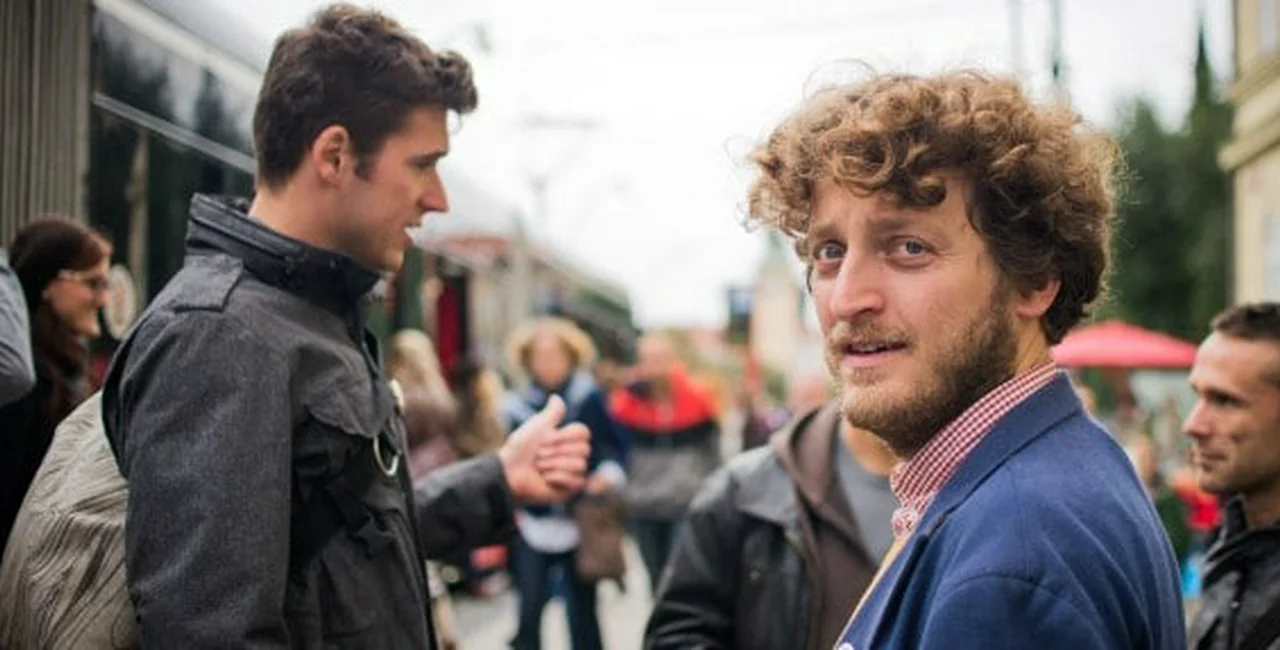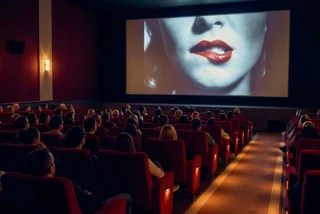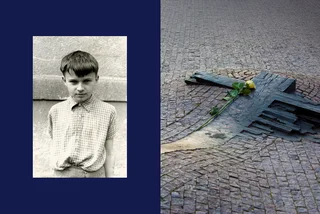Ondřej Kobza has already opened two cafés in Prague and is just about to take over another one. His Café V lese and Café Neustadt attract more and more people and he is excited about his forthcoming Bubenská Street venue, Podnik (previously known as Divus). Kobza is also the man behind the Pianos on the Streets (Piana na ulici) project, which has brought pianos to eight towns around the Czech Republic. We asked him how he perceives the public space and what, if any, influence foreigners have on Prague’s cityscape.
At the piano concert in December of last year at Hlavní nádraží, you said that you must customize Prague to your liking. You don’t normally like it?
I’m very happy in Prague because I have here people to talk to. There are not enough same-thinking people in Ústí nad Orlicí where I come from. Prague is very good, but you need to take a bit to complete it. I wish it to be shaped more by people and by more spontaneous activities. Foreigners are good at this. They have it in themselves. We can learn from them a different perception of what the public space is. With Pianos on the Streets, like the one at the train station, I wanted to show that it is not just a place to buy a burger or clothes or where men rush to catch trains but to be enjoyed.
You mentioned that foreigners can teach us how to perceive public space differently. Do you mean that the trend of events in the streets, community activities, and so on came here from the West?
No, not at all. It’s more a change of mentality, which awakens what we already have inside, rooted. The change is simply in the air. Although it is possible to trace the beginnings of such activities to Berlin, it doesn’t necessarily mean Berliners invented it. It’s simply human nature. Where it all started is more of a question for an anthropologist. Already in the Middle Ages, the bourgeoisie and the poor joined once a year and enjoyed the city together during the carnival. This is coming back.
So what do you think is waking people up?
Maybe it’s the post-war period, when we have more time and desire to have fun. But mostly, I think that people love paradox and contrast. To do something in a public space is distinct. Second, it is tempting to get ready for the chance of meeting someone with whom you can talk and interact with at the public happenings. Something unexpected can happen to you. I call this the syndrome of accident. I’ll go around and happen to appear nearby a piano where a stranger will be playing my favorite song and suddenly, I will realize something important thanks to that. And finally, there’s something ritualistic in placing pianos on streets instead of parked cars.

One of Kobza’s Pianos on the Street
PARTNER ARTICLE
Do you think that Czechs are “awakened” through international interactions? They travel more…etc.
Definitely a little bit, yeah, but I don’t think it is fundamental. It is important to be inspired by other examples, but I think the most important thing is to focus on what challenges one might face. Focus on imagination to change the public space.
Are there expats in Prague engaged in the organizational activities of different emerging projects?
I have no idea, but it is not important for these activities. I know of no significant foreigner who would become a project team member. I consider expats being an independent community here. But I would like to reach out to them to help us make Prague alive! But do not do it as foreigners, do it for us so we know about it. I can definitely imagine working with expats to help them or whatever!
What would be your ideal city according to your standards?
I would like to let people in public places do something more than just browse and rush through them. Let go of the ordinary day-to-day problems and unleash the imagination and spontaneity. For example, I dream of putting a grill on a city centre square in summer, broiling fish, and if someone comes around, swap conversation with them. Of course, that could end up as an embarrassment. But it is just an experiment, let’s see what happens! I go across Karlovo náměstí every day. It would be great to build a fire there and sell potatoes baked in the ashes, accompanied by a group of expats performing makeshift theatre. This will make our city more interesting, and besides, I believe that we will generate examples for new ideas.
Which city around the world is close to your ideal?
I’m not very well traveled, so I don’t know. But from what little I know about Berlin, I love their idea of flea markets directly in front of their houses. But again, in comparison to them, our Kolbenka is not that bad. It is a completely different dimension of Prague, I’m proud of its poetics. The local flea markets are not too organized, nobody pays taxes. And that’s exactly what I like – it’s organic. People just take something from their basements they no longer need and give it to someone else.
If not abroad, where do you get inspiration for your projects?
Pianos on the Streets just came to my mind as it appeared in the guy’s head abroad – as a coincidence. From what I heard, they were moving a piano but ran out of time so they just left it along the way on a railway. Some people were passing by it at night, decided to stay for a while and have a party playing it! We wanted to be a part of the Zažít město jinak festival which meant a simple task for us – make the street live! So I pulled a carpet, a couch, and a lamp out of Café V lese together with a piano. Well, now we have 13 of them in Prague!
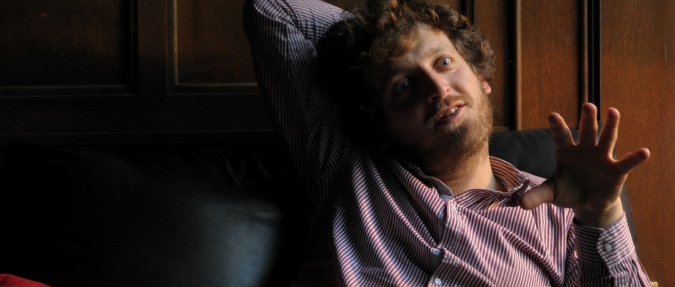
photo: Alžběta Trusinová
You mentioned in an interview that you are proud of the Czech region. What exactly are you proud of?
I am proud to say that here in Prague the old-time poetry is still alive. For me, it is represented by the pub U Černého vola, which looks the same for already 500 years. Such corners are rare to find today. And then I also think that if there were to be a competition called The world is playing the piano Czechs would stand for the test. I’m sure we would get into the top 10!
**
Do you think that expats make important contributions to urban progress?











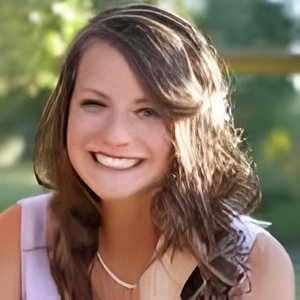
 Reading time: 5 minutes
Reading time: 5 minutes 